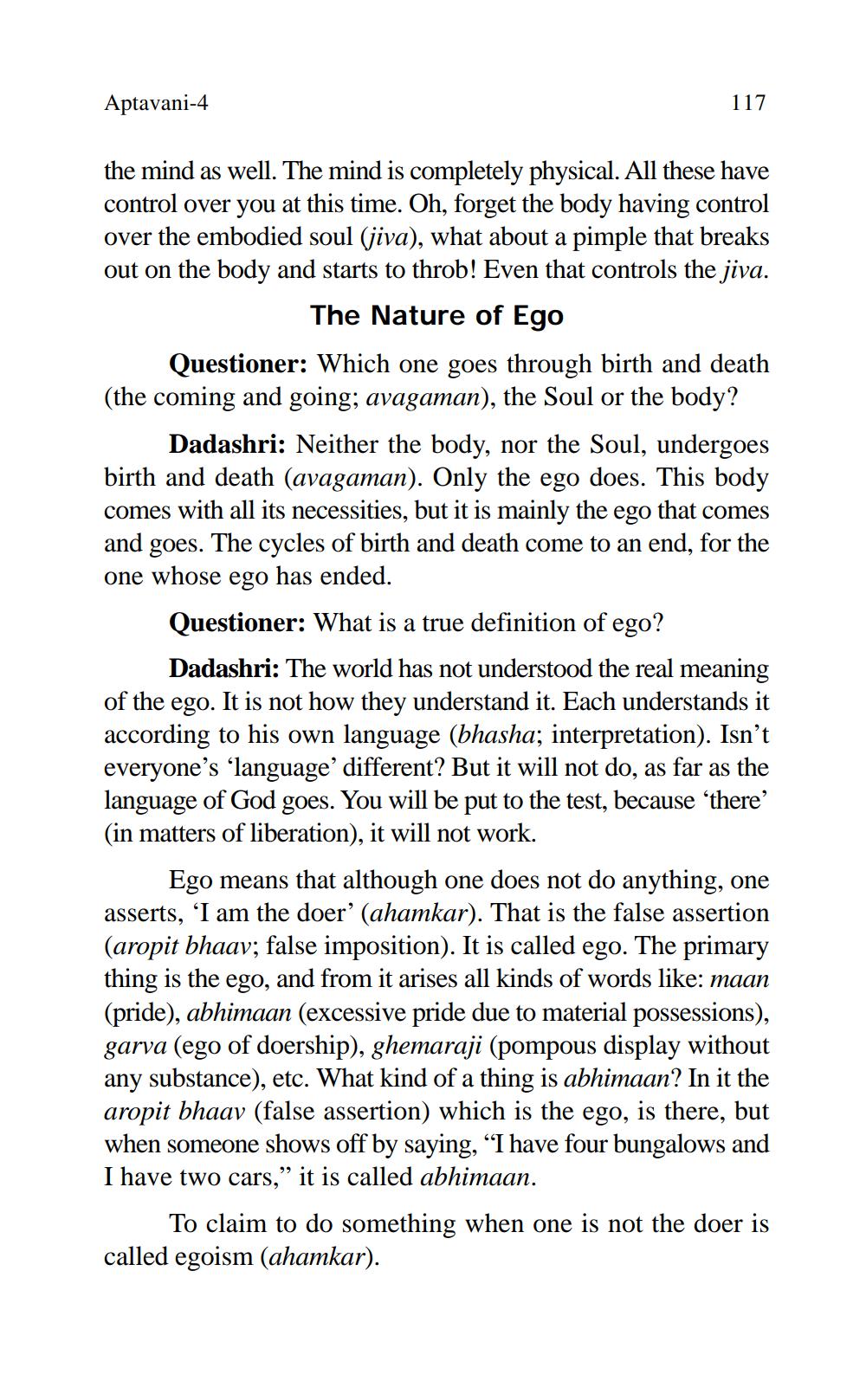________________
Aptavani-4
117
the mind as well. The mind is completely physical. All these have control over you at this time. Oh, forget the body having control over the embodied soul (jiva), what about a pimple that breaks out on the body and starts to throb! Even that controls the jiva.
The Nature of Ego Questioner: Which one goes through birth and death (the coming and going; avagaman), the Soul or the body?
Dadashri: Neither the body, nor the Soul, undergoes birth and death (avagaman). Only the ego does. This body comes with all its necessities, but it is mainly the ego that comes and goes. The cycles of birth and death come to an end, for the one whose ego has ended.
Questioner: What is a true definition of ego?
Dadashri: The world has not understood the real meaning of the ego. It is not how they understand it. Each understands it according to his own language (bhasha; interpretation). Isn't everyone's ‘language' different? But it will not do, as far as the language of God goes. You will be put to the test, because there' (in matters of liberation), it will not work.
Ego means that although one does not do anything, one asserts, “I am the doer' (ahamkar). That is the false assertion (aropit bhaav; false imposition). It is called ego. The primary thing is the ego, and from it arises all kinds of words like: maan (pride), abhimaan (excessive pride due to material possessions), garva (ego of doership), ghemaraji (pompous display without any substance), etc. What kind of a thing is abhimaan? In it the aropit bhaav (false assertion) which is the ego, is there, but when someone shows off by saying, “I have four bungalows and I have two cars," it is called abhimaan.
To claim to do something when one is not the doer is called egoism (ahamkar).




